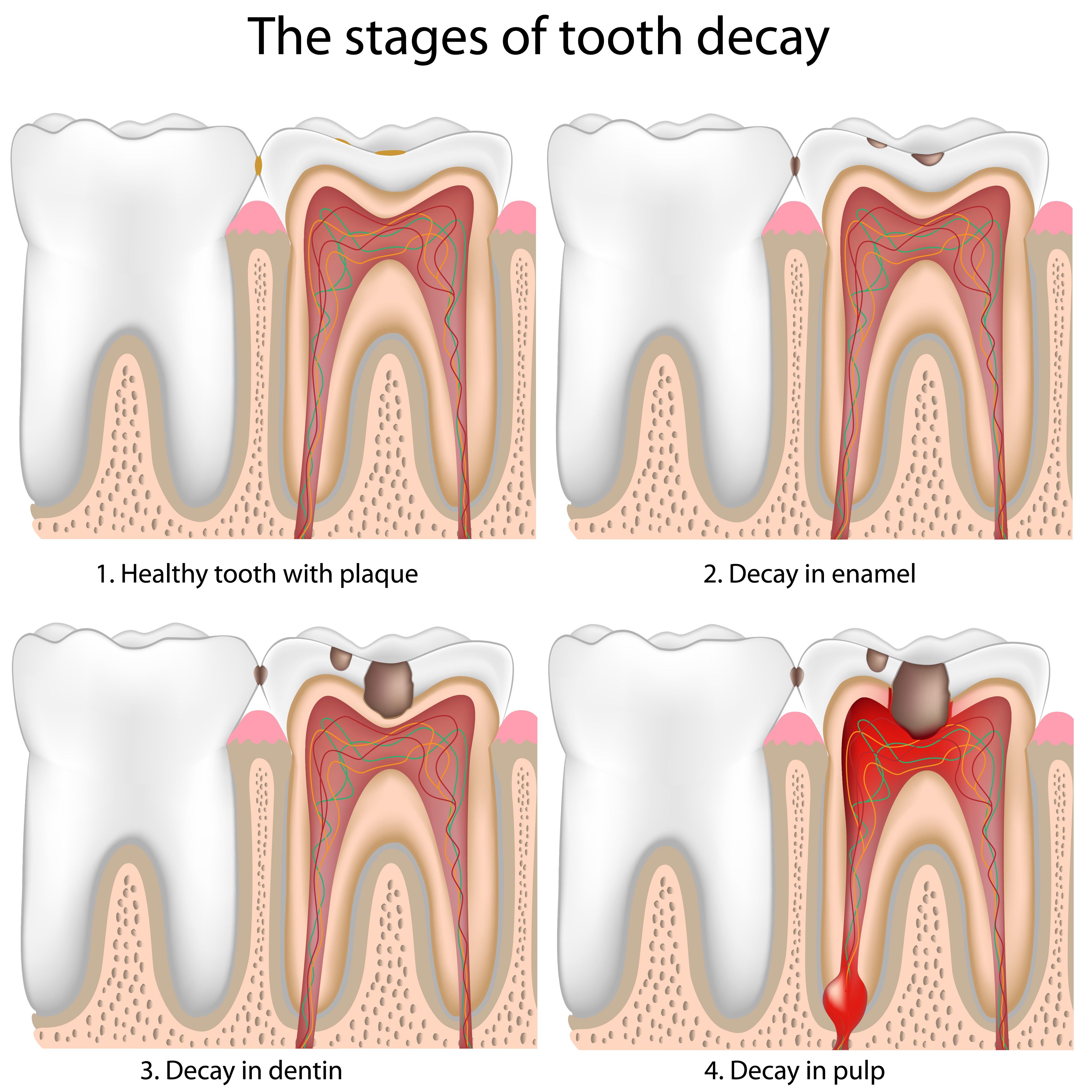Understanding the Stages of Tooth Decay
 Dental diseases are among the most common. They can result in discomfort and tooth loss. Dental cavities are perhaps the most well known dental condition.
Dental diseases are among the most common. They can result in discomfort and tooth loss. Dental cavities are perhaps the most well known dental condition.
Dental decay does not appear overnight. It occurs gradually. Dr. Bill Stofer, of Dental Solutions in Warsaw, IN, see the effects of cavities every day. Here, they discuss how the stages of tooth decay affect oral health, along with the restorative dentistry treatments that can improve the health of the teeth.
If a cavity can be identified early enough, its progression can be halted before it does irreversible damage to the tooth. This is just one reason why regular dental exams are so important.
What Is Tooth Decay?
Tooth decay damages the tooth structure. This is caused by acids excreted by certain types of bacteria that reside in the mouth. These acids are a byproduct of the bacterial consumption of fermentable carbohydrates, particularly sugars, that remain in the mouth after a meal.
Cavities can occur in patients of any age. They are especially common in those who have a high-sugar diet or do not brush and floss regularly. They are also prevalent in patients who have a chronically dry mouth, caused by medications or certain medical conditions. Saliva cleanses and re-mineralizes teeth, so a shortage of saliva places patients at higher risk for dental caries.
The Progression of Dental Caries
Dental decay starts slowly and is asymptomatic until it reaches a more advanced stage. It progresses unless measures are taken to halt or reverse it. A low-sugar diet, meticulous oral hygiene, and the application of fluoride can prevent cavities, and dental treatments can be performed once they develop.
Though the unchecked progression of dental cavities is a continuous process, it can be viewed as five distinct stages.
Stage 1: White Spots: This indicates initial demineralization of the tooth's outer layer, the enamel. It shows that the acids have begun to dissolve the tooth. It is still reversible at this stage.
Stage 2: Enamel Decay: The decay has broken through the enamel. It might still be reversible, but in most cases, a conservative filling will be needed to check its progression.
Stage 3: Dentin Decay: The decay has penetrated the enamel and started to affect the tooth's secondary layer, the dentin. Because the dentin contains nerve endings, the tooth will usually become sensitive to heat, cold, and other types of stimuli. At this stage, complete removal of the decay and placement of a filling, inlay, onlay, or crown is required.
Stage 4: Involvement of the Pulp: The cavity has completely penetrated the dentin, and the bacteria in it has infected the nerve and blood vessels, or pulp, that is deep inside the tooth. This stage is usually characterized by a severe toothache. Complete removal of the decay and root canal therapy will be required to relieve discomfort and save the tooth.
Stage 5: Abscess Formation: The infection has spread through the tip of the root and into the surrounding bone and soft tissues outside the tooth. The patient typically experiences pain and facial swelling. This is a very serious condition that must be treated aggressively with drainage of the abscess, antibiotics, and either root canal therapy or extraction of the tooth.
Do Not Give Cavities a Chance
The key to preventing cavities is simple: go easy on the sweets, brush often with a fluoridated toothpaste, and have regular dental exams and cleanings. The doctors and preventive dentistry staff at Dental Solutions are experts at detecting and addressing problems when they are still small. To schedule an appointment, call the office at (574) 269-1199 or send us a message.



